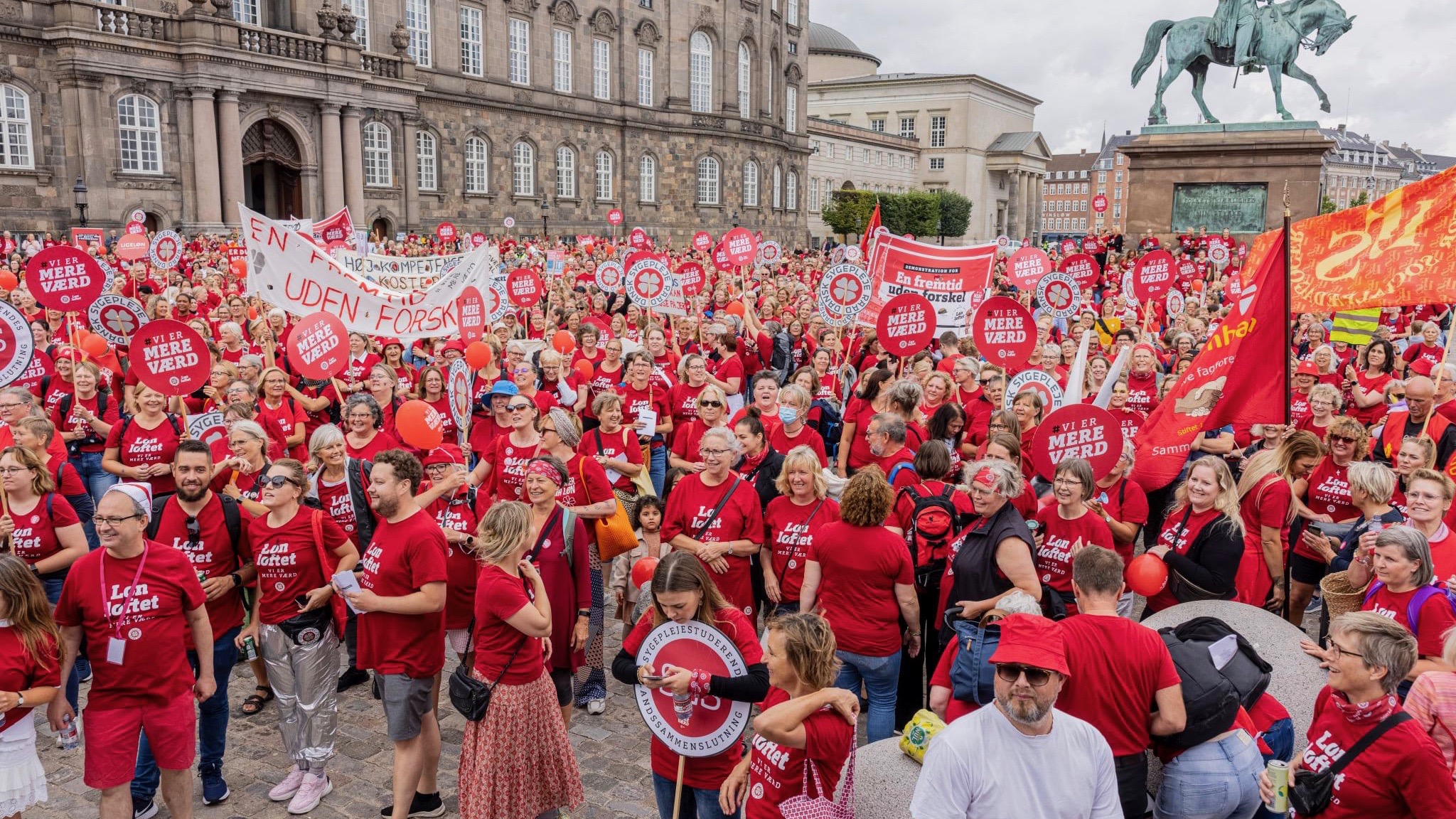Progressive political groups in Denmark have called on the coalition government in the country to make genuine efforts to resolve the grievances of the nurses to end their ongoing strike. Representatives from Enhedslisten (Red-Green Alliance) and the Socialist People’s Party (SF) in the Board of Danish Regions have urged the board and the regions to demand the government’s help in resolving the nurses’ issues. Over 5,000 nurses have been protesting in the country under the leadership of the Danish Nurses’ Council (DSR) since June 19. They are demanding a pay rise and end of the sector’s pay gap. On August 14, the striking nurses and their supporters organized a massive demonstration at the Christiansborg Castle Square in Copenhagen, reiterating their demands and expressing their resolve to fight. The strike entered its 62nd day on August 19, making it the longest nurses’ strike in Denmark.
The nurses’ union declared the intent to go for a strike in April, when the majority of its members rejected the collective agreement for 2021-2024 with the public employers in the regions and municipalities. Even though DSR cooperated with the conciliation efforts by the authorities in May, the union and its members overwhelmingly rejected the mediation proposal in June and started the strike on June 19.
DSR has demanded a significant pay rise in a time bound manner, recognition of the extra hard work in the COVID-19 period, additional staff, and ending the wage gap between female-dominated professions including nursing and other male-dominated professions. DSR complained that nurses’ salaries in Denmark are 15-20% lower than groups with comparable length of education. The union called the 1969 Civil Service Reform in Denmark unjust, claiming that nurses and other female-dominated professions were placed too low in the pay hierarchy by politicians.
The Danish nurses’ strike has received solidarity from other trade unions within Denmark and abroad, including the All Workers Militant Front (PAME) in Greece, European Federation of Nurses Associations (EFN), and Norwegian Nurses’ Association, among others.
After the nurses’ demonstration in Copenhagen on August 14, DSR president Grete Christensen stated, “the nurses are not satisfied with the current conditions. We want a fight against the unfair wage backlog and we are concerned about the health care of the future.”
“We want a salary equal to our responsibilities, education and assignments. We are striving for a future without difference,” she added.
The Communist Party (KP) in Denmark has also expressed its support and solidarity for the nurses’ strike. KP chairperson Lotte Rørtoft-Madsen opined that the strike is more than just an expression of demands for wages, equal pay, and wage arrears. “When nurses so stubbornly demand their rights, it speaks into a general societal issue, which is about a hollowed out nursing profession and lack of opportunity to provide the care that is needed,” she said. She also slammed the Danish mainstream media for purposely under-reporting on the strike.





